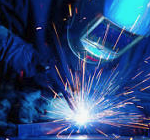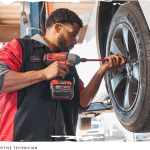The automotive industry is evolving, and for those in Arizona who are passionate about working with their hands and solving mechanical problems, now may be a good time to explore a future in automotive service. With rising vehicle complexity and consistent demand for skilled repairs, becoming an automotive technician offers a pathway that blends practical learning with long-term career potential.
However, recent changes in the industry, including rising repair costs linked to new tariffs, are also reshaping how the field operates. This blog will help you explore the factors that make this trade a compelling option, especially within Arizona.
How Are Tariffs and Industry Changes Affecting Auto Careers in 2025?
In recent years, automotive careers have been influenced not just by new technology but also by global economic shifts. One major factor in 2025 is the implementation of U.S. tariffs on imported automotive parts and vehicles. These tariffs have raised costs across the industry, impacting repair shops, manufacturers, and consumers alike.
Arizona technicians and shop owners may face longer wait times for imported parts or may need to adapt to domestic alternatives. While these changes present challenges, they also highlight the value of technicians who understand diagnostics, parts sourcing, and flexibility in an evolving service environment.
Major auto manufacturers such as General Motors have reported significant profit hits due to tariff-related expenses, which in turn affect production decisions, according to Reuters. However, the ongoing need for vehicle repair and maintenance continues to provide opportunities for skilled professionals trained to navigate these changes.
Industry experts, including those at Dentons, note that global trade policies, labor market shifts, and supply chain instability continue to shape how technicians are trained and employed.
What Is the Job Outlook for Automotive Technicians in Arizona?
The national job outlook for automotive technicians shows a steady 3% growth from 2023 to 2033, which is on par with the average for all occupations, according to the BLS Occupational Outlook Handbook.
However, Arizona stands out with even stronger projections. Based on data from O*NET and Projections Central, employment for automotive service technicians and mechanics in the state is expected to grow by 17% between 2022 and 2032. That’s an increase from 18,770 to 21,890 jobs over the decade. Arizona is also projected to have around 2,020 annual job openings during this period, accounting for both new job creation and replacement needs.
This above-average growth is likely tied to several regional factors, including year-round driving conditions, population increases, and the need for ongoing maintenance in both urban and rural communities.
Is It Worth Being a Mechanic in 2025 and Beyond?
There are definite pros and cons to consider when thinking about a career as an automotive technician. On the positive side, technicians enjoy hands-on work, a variety of tasks each day, and the satisfaction of solving mechanical issues that keep people safely on the road. With the growing use of hybrid and electric vehicles, the trade is also becoming more technologically advanced.
On the flip side, automotive service work can be physically demanding, requiring technicians to stand, bend, and lift throughout the day. Keeping up with new vehicle technologies also means committing to continuous learning throughout your career.
That said, for those who enjoy troubleshooting, staying active, and adapting to innovation, the role of a technician may offer long-term fulfillment.
What Training Do You Need to Become an Automotive Technician?
Arizona Automotive Institute (AAI) offers a 13-month Automotive Service Technician program designed to prepare students for entry-level roles in vehicle diagnostics and repair. The curriculum includes instruction in engine performance, brake systems, transmissions, HVAC systems, and suspension/steering components.
AAI’s training also helps students prepare for EPA Section 609 certification, which is required for servicing automotive air conditioning systems.
If you’re curious about where training can lead, check out our blog on what you can do with automotive technician training.
Is Automotive Technician a Good Career for the Future?
The automotive service industry continues to evolve with the introduction of new technologies, including electric drivetrains, advanced diagnostics, and driver assistance systems. These innovations make the technician’s role more complex and more valuable.
Skilled technicians who stay current with certifications and industry trends may be better positioned to pursue long-term opportunities in the field. Adaptability, critical thinking, and technical skill are increasingly essential.
To learn how technicians differ from traditional mechanics, visit our blog on Automotive Mechanic vs. Automotive Technician: What’s the Difference?
Ready To Learn More?
If you’re passionate about cars and want to explore hands-on training, Arizona Automotive Institute offers a practical program to help students build foundational automotive service skills. Instructors at AAI bring real-world industry experience to the classroom, helping students connect training concepts to actual shop environments. With a focus on diagnostics, system repair, and foundational knowledge, AAI’s program may help students prepare for a variety of entry-level roles in the field.
The campus setting is structured to mirror the type of equipment and workflow found in today’s automotive shops, which can enhance student familiarity with industry expectations. AAI also supports students with resources like tutoring, resume writing assistance, and job interview preparation, all designed to help students make the most of their educational experience.
Request more information here to get started.
Disclaimers: Information within this blog is for general information purposes only. AAI does not assume or guarantee certification/licensures, specific job/career positions, income earning potential, or salary expectations based on the programs offered at AAI. Career and program information statements in this blog do not guarantee that programs or other information mentioned are offered at AAI.
Information within this blog is for general information purposes only. AAI does not assume or guarantee certification/licensures, specific job/career positions, income earning potential or salary expectations based on the programs offered at AAI. Career and program information statements in this blog do not guarantee that programs or other information mentioned are offered at AAI.





